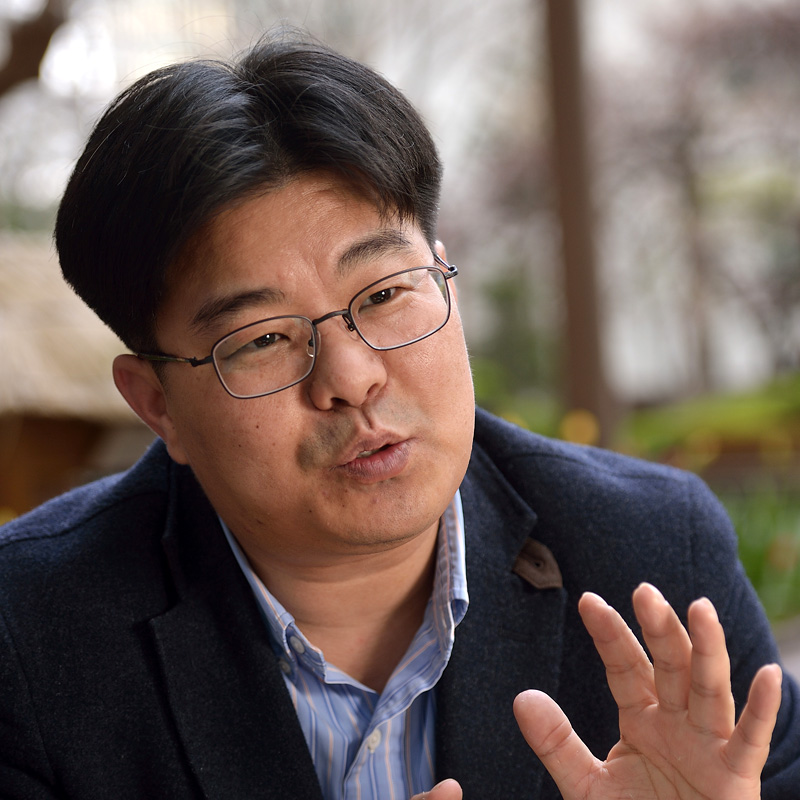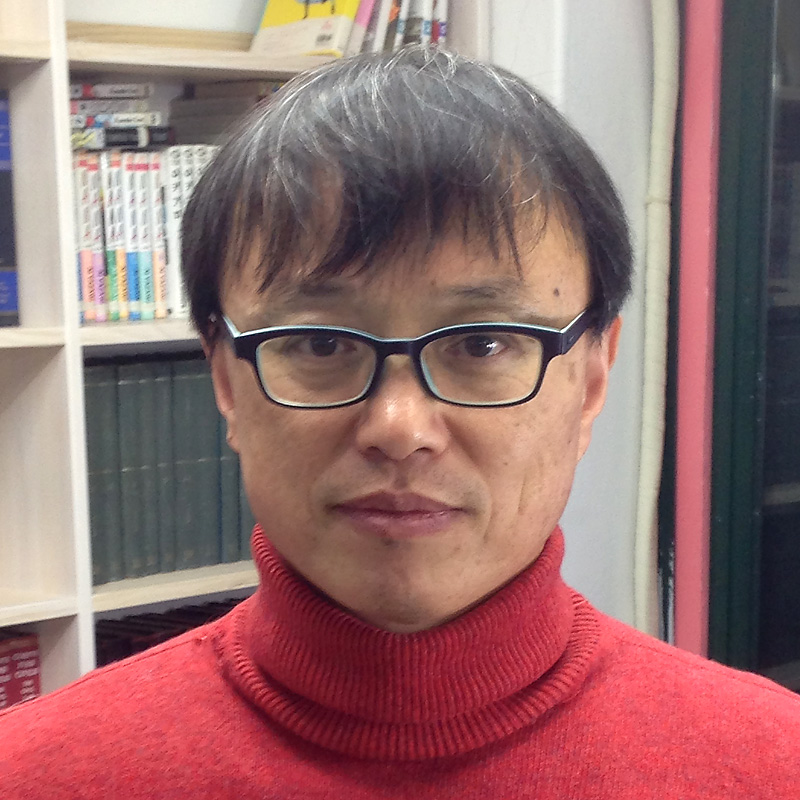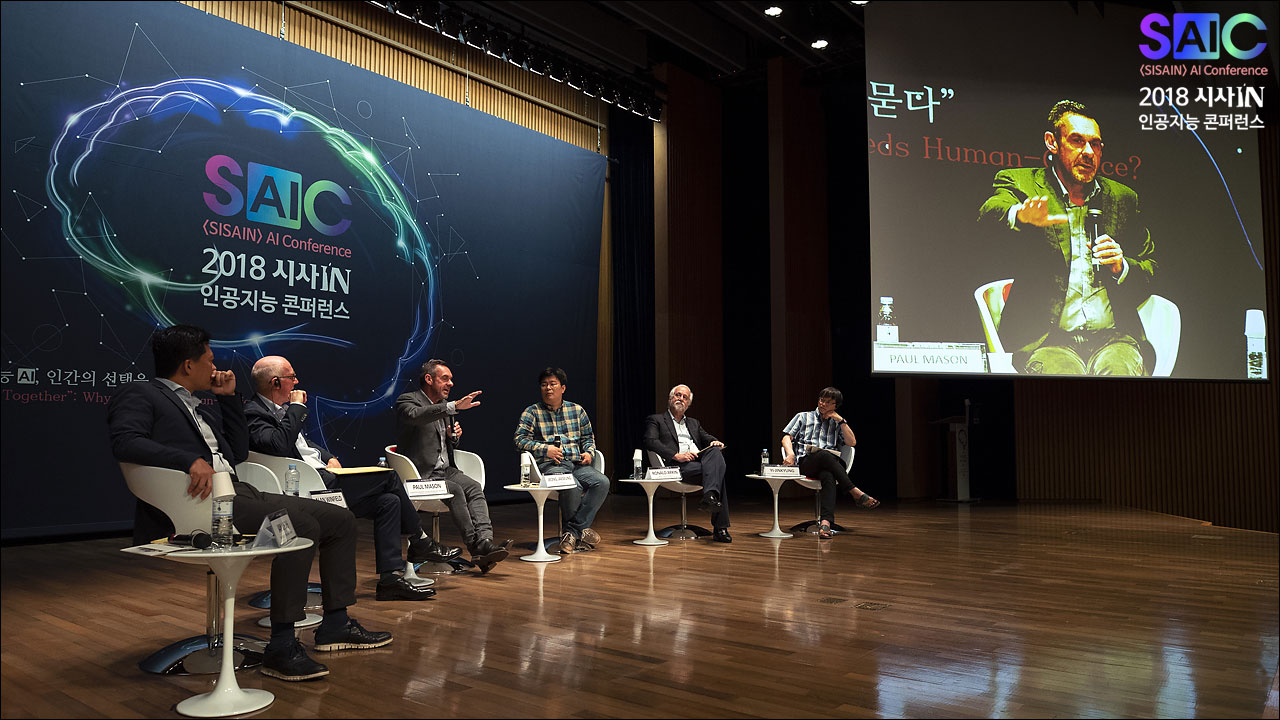“Smarter Together": Why AI Needs Human-Choice?
The age of Artificial Intelligence (AI) is the future already here. Countries around the world are putting all their resources into making an accurate prediction about how AI will change the future of wealth and labor. We are facing the inevitable prospect of robots significantly replacing human jobs. Active discussions are taking place over an automation tax on robots that will change the job landscape in our society.
Another topic of an ongoing global debate is whether to allow the development of fully autonomous weapons or killer robots, which will select and engage targets without human intervention.
<SISAIN> invites world-renowned scholars at the forefront of controversy over AI to address crucial social issues. It will be a meaningful opportunity for all those who are concerned about our choices in the age of AI.

Opening Remarks
Hello!
I feel humbled and honored to be able to address you all today and truly grateful for your attendance. Ladies and gentlemen, my sincere welcome to you all. Despite the heat and humidity not being the most accommodating, I sincerely hope that the good company of others and the value gained from this forum can make it a worthwhile one, albeit a slightly sweaty and sticky one. This scorching weather, once unfamiliar to Korea, is being experienced globally, as temperature rises have resulted from the mass consumption and mass production mankind has long indulged in.
Nevertheless, we are not here to talk about the issue of global warming, but to discuss another negative, potentially threatening matter, a very new and imminent problem that has already appeared on our path ahead, by the name of Artificial Intelligence(AI), and the potential for an entirely new world where mankind coexists with pseudo-human beings equipped with advanced intelligence. We are lucky enough today to have in our presence a number of experts in regards to this field, and I'd like to deliver my special gratitude to those distinguished scholars and journalist who came over for this event.
When Google DeepMind's AlphaGo equipped with AI defeated human champion Lee Sedol in a historic Baduk competition a few years ago, we were amazed, and inwardly shocked. Since then, AI has widely permeated its way into our daily lives and begun to bring about a number of changes. As signs were seen that AI could actually affect the fields of industry and our jobs, enterprises were sensitive to respond to that trend, while universities have reacted by adding new subjects related to that new technology.
Debate after debate followed the development of AI technology. Some say, not long before, days will come when we can hardly discern between AI and real human beings. And predictions are pervading, sooner or later we will face a period in time when AI exceeds the intelligence of mankind, that is, the advent of technical singularity. Even though there may be some differences in the matter of when, opinions seem to be unanimous in predicting human society will undergo a drastic and complete metamorphosis.
Novel thoughts and technologies tend to arouse debate. Just is the case with AI as well! Some express their opinions that physical entities equipped with AI will be the new friends and assistants to human beings, whereas others assert that if robots were equipped with the capacity of receiving information and further provided with the capability of producing information, then they will not only threaten human jobs but inevitably threaten to gain autonomy and finally come to pose as opponents or enemies to mankind at long last.
To find out a right answer to this question may not be easy. It may be impossible in fact, for that is a matter which involves the character, thoughts and judgements of human beings. However, today, at this event, we can gain a clearer understanding of the problems we may face in the future in regards to AI. Once we achieve a clearer and more accurate understanding of what we face, it will open the door to finding a means of evading the worst potential fates that we may be confronted with.
The extensive knowledge and insight gained from distinguished domestic and overseas scholars will no doubt give us a great advantage in understanding these matters further. Thank you all again!
August 14th, 2018
Wan Soo Pyo CEO of <SisaIN>
speakers

JEONG, Jaeseung
Professor, Department of Bio and Brain Engineering, KAIST
Graduate, KAIST(Korea Advanced Institute of Science and Technology); 1999, PhD, Department of Physics; postdoctoral studies in Psychiatry, Yale School of Medicine. Formerly: Assistant Professor of Psychiatry, Columbia University; currently, Professor, Department of Bio and Brain Engineering, KAIST; Chief professor, Program of Brain and Cognitive Engineering, working on decision-making, brain dynamics, brain-robot interface, computational psychiatry, and brain-inspired Artificial Intelligence.

Ronald Arkin
Regents' Professor & Director of the Mobile Robot Laboratory, Georgia Tech, USA
Ronald C. Arkin is Regents' Professor and Director of the Mobile Robot Laboratory in the College of Computing at Georgia Tech and is the Director of the Mobile Robot Laboratory. He served as STINT visiting Professor at KTH in Stockholm, Sabbatical Chair at the Sony IDL in Tokyo, the Robotics and AI Group at LAAS/CNRS in Toulouse, and is currently on sabbatical leave in Brisbane Australia at the Queensland University of technology and CSIRO. Dr. Arkin's research interests include behavior-based control and action-oriented perception for mobile robots and UAVs, deliberative/reactive architectures, robot survivability, multiagent robotics, biorobotics, human-robot interaction, machine deception, robot ethics, and learning in autonomous systems. His books include Behavior-Based Robotics, Robot Colonies, and Governing Lethal Behavior in Autonomous Robots. He has provided expert testimony to the United Nations, the International Committee of the Red Cross, the Pentagon and others on Autonomous Systems Technology. Prof. Arkin served on the Board of Governors of the IEEE Society on Social Implications of Technology, the IEEE Robotics and Automation Society (RAS) AdCom, and is a founding co-chair of IEEE RAS Technical Committee on Robot Ethics. He is a Distinguished Lecturer for the IEEE Society on Social Implications of Technology and a Fellow of the IEEE.

Alan Winfield
Professor of Robot Ethics, University of the West of England (UWE), Bristol, UK
Alan Winfield is Professor of Robot Ethics at the University of the West of England (UWE), Bristol, UK, and Visiting Professor at the University of York. He received his PhD in Digital Communications from the University of Hull in 1984, then co-founded and led APD Communications Ltd until taking-up appointment at UWE, Bristol in 1992. Alan co-founded the Bristol Robotics Laboratory where his research is focused on the science and engineering of cognitive robotics; current projects are focused on robots with simulation-based internal models and multi-robot systems in critical environments.
Alan is passionate about communicating research and ideas in science, engineering and technology; he led UK-wide public engagement project Walking with Robots, awarded the 2010 Royal Academy of Engineering Rooke medal for public promotion of engineering. Until recently he was director of UWE’s Science Communication Unit. Alan is frequently called upon by the press and media to comment on developments in AI and robotics; he was a guest on the BBC R4 series The Life Scientific and more recently interviewed for BBC News HARDtalk.
Alan is an advocate for robot ethics; he sits on the executive of the IEEE Standards Association Global Initiative on Ethics of Autonomous and Intelligent Systems. He is a member of the Ethics Advisory Board for the EU flagship Human Brain Project, and AI ethics advisor to the Topol review for the UK National Health Service. Alan has published over 240 works, including Robotics: A Very Short Introduction (Oxford University Press, 2012); he lectures widely on robotics, presenting to both academic and public audiences, and blogs at http://alanwinfield.blogspot.com

Paul Mason
Award Winning British Journalist, Broadcaster and Author
Paul Mason is a writer, broadcaster and film-maker who speaks on the areas of economics, globalisation and the future of capitalism. As Economics Editor for Channel 4 News from 2013-2015 he covered all aspects of the UK and global economy, markets, labour and commerce.
Previous to his role as Economics Editor, Paul was Channel 4’s Culture and Digital Editor examining the social, cultural and business impact of the new age of digital and online. Between 2001 until 2013 Paul worked on BBC2’s Newsnight programme, firstly as Business & Industry Correspondent, and then as Economics Editor. Paul’s first live appearance on Newsnight was on the day of the September 11 attacks in 2001 and during his time working on the programme, he covered stories as diverse as the corporate scandals of Enron and Worldcom, Hurricane Katrina, gang violence in Liverpool, the social impact of mobile phones in Africa, and the rise of Aymara nationalism in Bolivia. In 2008 Mason appeared as the key talent in a new five-part BBC series Credit Crash Britain.
Paul has written a series of books covering contemporary economics and politics, including ‘PostCapitalism: A Guide to Our Future’(2015), in which he discusses the threat posed to capitalism by the digital revolution – its potential to reshape our notions of work, production and value; and to destroy an economy based on markets and private ownership. In ‘Why It’s Kicking Off Everywhere’, he shined a light on the new activism, from cyber-protest in the Arab Spring to the Occupy movement. In ‘Live Working Or Die Fighting: How The Working Class Went Global’, he examined the epic history of the labour movement; and in Meltdown he explored ‘the age of greed’. His next project is a book called Clear Bright Future, which is a defence of radical humanism in the face of artificial intelligence and algorithmic control. It is due out early in 2019.

Ian I. Huh
Division Head, IoT/Data Business, SK Telecom
Dr. Ian Huh is the head of the IoT/Data business division of SK Telecom, the #1 mobile network operator in South Korea with more than 26M service and solution subscribers. Dr. Huh’s main responsibility is to provide the value of the digital transformation to various industry verticals, leveraging the leading-edge network, big data / machine learning technologies, and IoT software platform. For example, SK Telecom’s machine-to-machine connectivity service is now covering more than one and half million mission critical devices, and also company’s big data solution suite is enabling data-driven transformation in the industries like marketing, factory and public services. Before joining SK Telecom, Dr. Huh worked at Samsung Electronics’ semiconductor business division, where he managed several product lines such as Mobile Application Processor/Modem, Flash Memory, and Solid State Drive (SSD). He also worked as a product innovation manager at Samsung Electronics’ US subsidiary and Global Marketing Operation office.
Dr. Huh holds a doctoral degree in mechanical engineering from the University of Michigan, Ann Arbor, in Michigan, US, where he spent long hours at automotive factories to collect and analyze the operation data from the numerous machines. He also holds master’s and bachelor’s degrees in engineering from the Seoul National University, Korea.

YI-Jinkyung
Professor, Seoul National University of Science&Technology
Dr. YI-Jinkyung is a Korean philosopher and a Professor at the Seoul National University of Science&Technology in Seoul. He is also a member of ‘SUYUNOMO 104(www.nomadist.org)’, the Korean Knowledge Community of philosophy and Humanities.
He received his BA and an MA in Social Sciences from Seoul National University, and a PhD in Western Architectural History (Social Sciences) from the Seoul National University.
He has published over 30 books in the Social Sciences and philosophy. Book titles include <Nomadism> <Capital Beyond Capital> <Ontology of the Disquiet> <Commune-ism> <Philosophing the Buddism>.
































